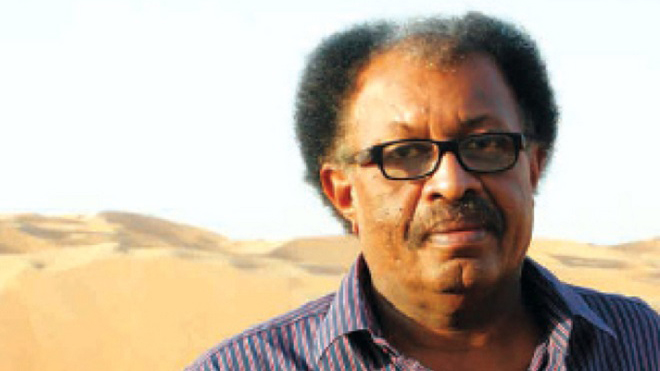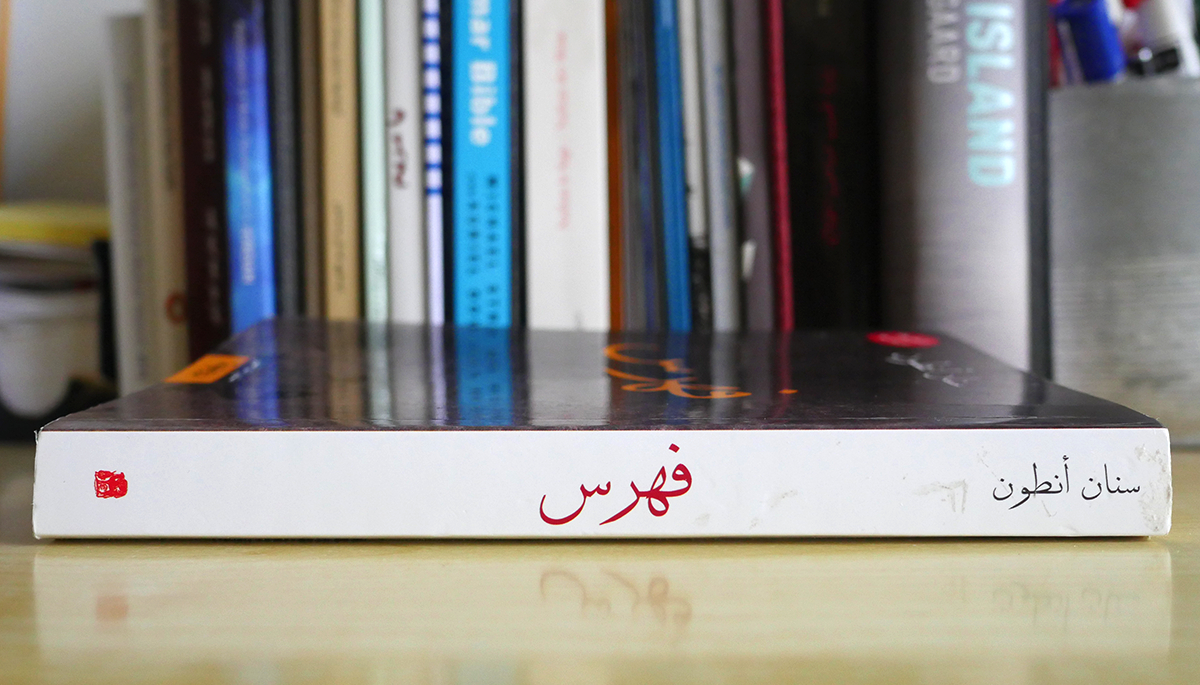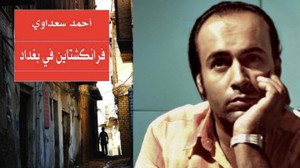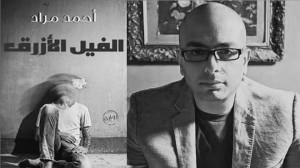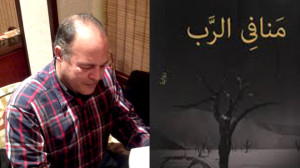Amir Tag Elsir (@amirelsir), longlisted for the 2014 International Prize for Arabic Fiction for his novel 366, was previously shortlisted for his novel The Grub Hunter (in 2011), which was translated into English by William Hutchins. Elsir was born in Sudan in 1960 and currently works as a physician in Doha, Qatar.
He talked to ArabLit’s M. Lynx Qualey about his writing process, the novel 366, and the literary scene in Sudan. This post originally appeared on Arab Literature (in English) on January 17th.
Amir Tag Elsir: I don’t really know why I chose fiction. Actually, I started my writing life early as a poet. I wrote a lot of poems published in magazines and newspapers when I was a medical student in Egypt. In 1988, I met with the great writer Abdelhakim Gasim, and he liked my poems but advised me to try novels. I wrote a small novel called Karmakul, the name of my childhood village, and when it was published with a small publisher, there was a good reaction. Then I graduated, returned to Sudan, and stopped everything until 1995 when I worked in Qatar. That’s when I wrote another small book, and I continue to write till now. Really, I found myself in writing novels.
AL: You wrote the short novel 366 very quickly, in just three months, correct? Did you imagine the story in your head first, sketch it out, or did you just dive in and let the book happen as you went along?
ATE: True, it took me three months to write, but I never sketched it out. My way of writing is to find a good idea first, then there will be continuous thinking about that idea, and when I find a strong beginning I dive in without any planning; I just write and the story will go till the end. Usually I write about 1000 words a day, and this could be in three or four hours.
AL: Once you’d written the whole text, what is your revision process? Do you have any readers who you rely on for their opinion, or did you work completely on your own?
ATE: When I finish a chapter I revise it before staring new one, and so on, then I revise the whole book when finished at least two times. I never give it to a reader and we don’t have editors in Arab world to seek their opinions, so the whole process is done by the writer himself. When I feel that the book is ready, by my own opinion, I deliver it to the publisher.
AL: The novel 366 is based on some letters you came across by chance several decades ago, when you were still a student. What triggered your memory of the letters and made you think: This is the moment to write about them?
ATE: Many years passed since I found the letters written by the deceased, but suddenly I remembered them — not what was inside that letters, but the accident of finding them. I wrote about the memory on my Facebook wall, and I found almost all my friends suggesting that this is a novel and I must write it, so I began to think about that and finally started writing the book.
AL: Do you still have the letters? Or did you re-imagine them for the novel? Were there particular elements to these love letters from decades ago that caught your attention and stayed with you all this time? What was special about them?
ATE: No, the letters were lost at the time I reimagined them. I wrote a novel that was different but holding the same idea. By now, I can’t remember much about them. The thing I remember is that they were written with a beautiful hand using green ink, and they were about 50 long letters put in an envelope. Written on the cover was: The letters of the deceased to his lover Asmaa.
AL: You said that this novel was quite difficult to write; as it’s the first time you’ve written a novel of this kind. You mean it’s the first time you’ve written an epistolary novel, addressed to another character? How do you see the process as different from your previous novels? How was the writing process different?
ATE: I mean that this was the first time I wrote a love story that’s very close to realism, although with the inclusion of some political and social aspects. I usually prefer magic realism, and I have my own style in magic realism, but the difficulty here was how to imagine that I am the man who should write these letters. But finally I wrote it.
AL: Why did this book call for a more “realistic” novel, instead of your sort of magical realism?
ATE: This is a contemporary novel and also a journey of a man searching for a woman he loved and also describes the politics and community at that time — those type of books should be written in such a style. Well, it is not completely realistic, as you will find, there are also some strange events.
AL: What were the difficulties you encountered as you put it together? In structure, character, style?
ATE: Only in style — the structure and language where easy to me, because for a long time I have my own language which is different from other writers.
AL: Were there particular love stories that you took as a model? Are there particular love stories in Arabic that inspire you, or that you enjoy?
ATE: First those letters of Marhum inspired me but definitely I have been inspired also by famous Arabic stories like story of Majnoon Leyla which is a great love story written in poems. Here the story is like a contemporary Majnoon Leila.
AL: Why set the novel in the 1970s? Does the socio-political situation in Sudan in the 1970s have some resonance with how you see the world today? With how you see Sudan today?
ATE: No there is no relation to the socio-political situation — the novel is set at that time because I found the letters in 1978.
AL: How do you see the situation of readers and writers in Sudan? Do you ever think of going back, or are you settled in Qatar?
ATE: Now Sudanese writing, as with any writing in the Arab world, has become more evolved. We have many talented writers, and I go to Sudan every year and meet writers and readers there. About going back, yes, once I’m retired from my work as a doctor, I will return.
AL: What are your feelings generally about literary prizes? Do they encourage new authors, better writing, more readers to take an interest? Or do they encourage only a certain sort of writing, making authors “write to the prize”? Do you see prizes as a positive or negative force, or both?
ATE: All you mention could be right, we can gain new good writers, in the same time we find that many write only for the prize. But in general, literary prizes are good for literature.
AL: Do you think IPAF has changed the landscape of Arabic fiction, or Arabic fiction in translation / in world literature? How?
ATE: Yes, it changed the landscape. Here, we find select novels, most probably strong novels, that can pass to translation and find other readers. This definitely helps Arabic literature.
AL: Has your writing changed at all in the digital era, as you can receive more feedback more quickly from around the region? Or do you write in much the same way that you did ten or twenty years ago?
ATE: I think my writing changed according to changes that happen in the world and technology. Now, I can search for things that I need easily, and I can write without as big an effort as before.
AL: The internet makes your work easier by, for instance, allowing you to quickly look up song lyrics? Does it also change how you write your books? Or how you interact with your readers?
ATE: The biggest importance of the internet for my writing is that I can search quickly for information I need during writing, and I can see the reviews of readers and also interact with them. Those things make the writer more up-to-date, and one can gain a lot from reader feedback.
Excerpts online:
An excerpt of Ebola ’76, trans. Maia Tabet (English)
An excerpt from 366 (Arabic)
**If you are interested in writing a book review of the longlisted books, or interviewing one of the authors, contact us at [email protected].
**اذا كان لديك اهتمام باجراء مقابلة مع أحد الكتّاب المذكورين أو بمراجعة احدى الكتب الرجاء ارسال بريد الكتروني لعنوان [email protected].
